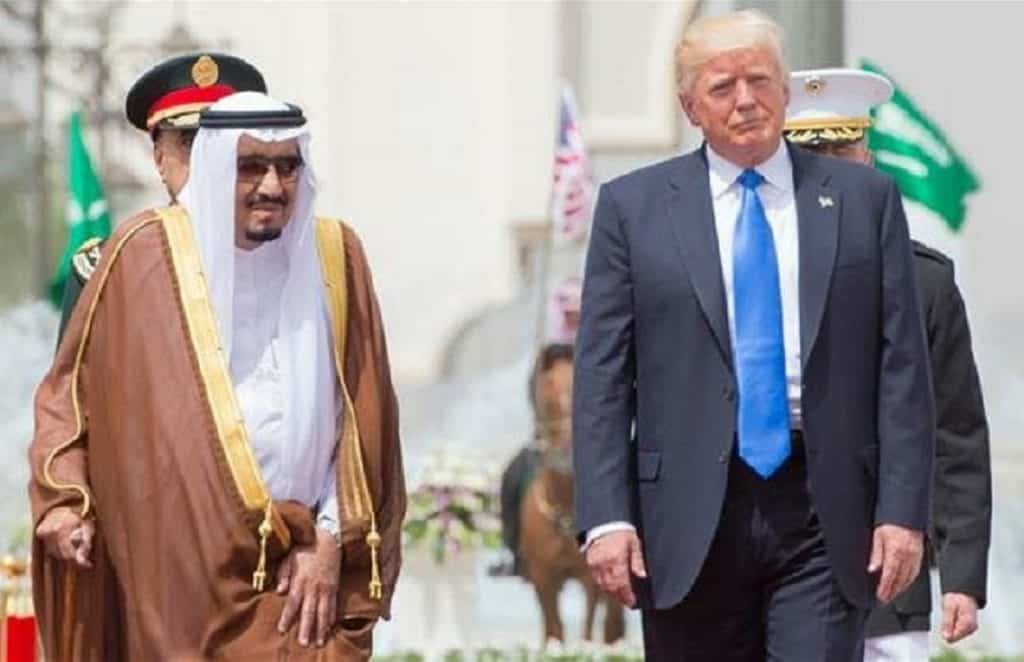By Denis Korkodinov
As the US presidential election approaches, the White House administration is losing ground in the Middle East. The Anti-Iranian Alliance of States is rapidly losing its relevance.
Donald Trump, more and more involved in the process of discrediting his competitors for the presidency of the United States, demonstrates a loss of interest in Iran. Israel, in turn, worried about the process of forming a coalition government, also weakened its onslaught on the Ayatollah regime.
Having become the head of the White House, in January 2017, Donald Trump noticeably intensified cooperation between Washington and the Sunni states, whose leaders were seeking to neutralize the spread of Shiites, and therefore Iran posed a major threat to them. However, the internal political crises in the Arab countries and their involvement in peripheral military conflicts (for example, in Yemen) contributed to the emergence of disappointment in US policy, which, as a rule, does not show much interest in solving the problems of its Arab allies.
For this reason, their attitude towards Iran has changed. Therefore It is not surprising that, in connection with this, Saudi Arabia, through the mediation of Iraq, is looking for an opportunity to restore the negotiation process with Tehran in the hope of easing regional tension.
Tel Aviv, which until recently was at the forefront of the anti-Iranian campaign, currently does not have the opportunity to actively intervene in foreign affairs. Against the background of the protracted process of forming a coalition government, the law enforcement agencies in Israel are paralyzed, because no one can be sure of what foreign policy the new head of the parliamentary coalition will choose. Almost the same thing is happening in the direction of the Gaza Strip, where Israel cannot organize full-scale resistance due to internal political confusion.
Thus, all countries that in one way or another were an asset of the international anti-Iranian alliance are involved in the process of resolving exclusively internal problems. In this regard, the leaders of these countries are experiencing some irritation, when Donald Trump is trying to put pressure on them to confront Tehran.
Israel, Saudi Arabia and the United Arab Emirates hoped that during the session of the UN General Assembly, Washington would take steps to normalize relations with Iran. At least, the “Iranian initiative” to resume negotiations and conclude a new nuclear agreement made it possible to hope that Donald Trump, especially after the dismissal of John Bolton, would accept it. However, the United States did not. Moreover, the head of the White House openly emphasized that he did not intend to put up with Iran. Meanwhile, the international community is already pretty tired of Washington’s anti-Iranian hysteria.
Among other things, the attack on the Saudi Aramco facilities was clearly demonstrated by the fact that Iran should not be joked, as it could jeopardize the entire world economy. Based on this, Arab leaders would prefer to try to make peace with Tehran on their own, no longer relying on the opinion of the United States.
Meanwhile, Donald Trump, despite his militaristic rhetoric, is also not ready to fight. For the first time, this became clear when, in June 2019, the American leader refused to attack Iranian military facilities in response to the crash of a U.S. military drone. Donald Trump literally a few minutes before the U.S. Air Force intended to launch a missile bomb attack on the positions of the Ayatollah regime, ordered the cancellation of the military operation. After that, the United States almost completely discredited itself not only to Izraml, but also to its Arab partners, who were waiting for the start of hostilities.
Thus, already in July 2019, the anti-Iranian coalition ceased to believe the words of Donald Trump. As a result of this, the international heat of passion towards Tehran has gradually declined. And now, neither the Saudis, nor Tel Aviv are ready to take risks, provoking the ayatollah regime to military aggression.
(The views expressed in this article belong only to the author and do not necessarily reflect the views of World Geostrategic Insights)







